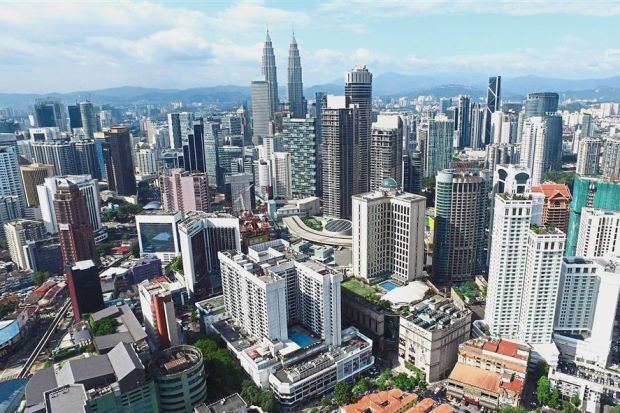Fund managers positive on Malaysia
PETALING JAYA: Fund managers and analysts continue to be positive on Malaysia despite the World Bank cutting its gross domestic product (GDP) growth forecast for 2018 to 4.9% from 5.4% on the back of slowing export growth and lower public investment.
They feel that the slowing GDP is to be expected, following the many cost-cutting measures that are being undertaken by the current government. These are now the painful measures that need to be taken to right the economy that has been mismanaged for decades.
The investment fraternity would rather see a slow growth over the short period, if that results in a stronger and more resilient economy over the longer term.
The World Bank is expecting Malaysia’s pace of economic expansion to continue moderating until 2020.
“Next year, the World Bank and other sources are looking for roughly 4.5% type growth, which frankly I think is quite ok, because we are living in a world of uncertainty and there is a trade war between the US and China. So, Malaysia is holding up. It’s not too bad at all. More importantly, I think the longer-term issue for the country is a structural one,” said Cheah.
“All the electorate knows now is that there is a lot of painful medicine. They do not realise that the painful medicine is a result of past pains. The medicine must be applied now to resolve the issue.”
He pointed out that Malaysia’s election cycle is one which takes place every five years.
“The Pakatan Harapan coalition has won, but it has to get a new mandate five years from now. However, the structural reforms that we need to implement usually will take well before five years to deliver. So, I always worry that before the government can deliver the reforms, it’s already time for another election.”
Chief executive officer (CEO) and fund manager at Inter-Pacific Asset Management Sdn Bhd Lim Tze Cheng said that the GDP is one of the many economic indicators to evaluate the state of affairs of a country.
He explained that the cancellation and revision of infrastructure projects is causing a downward revision of GDP data.
“These projects, due to their initial excessive costs, will add higher debt burdens. It’s a matter of choosing between reporting higher GDP fuelled by higher debts, or taking the rational approach to reduce debts at the expense of a lower reported GDP. I am still positive on Malaysia,” said Lim.
Rakuten Trade Sdn Bhd vice-president of research Vincent Lau said that what Malaysia has now is a government that acknowledges the overspending of the previous government.
“The government has a debt of some RM1 trillion and is therefore embarking on smart spending and cost cutting to manage the economy. This may result in short to mid-term pain, but at least over the long term, the economy is on the right track,”
He added that a growth of over 4% is still a respectable growth, and is not a key catalyst for downgrading the market.
“Should Malaysia start to surprise with stimulus measures to grow the economy, that might even be a surprise to the upside,” said Lau, who remains positive on Malaysia.
Areca Capital CEO Danny Wong also agrees that the World Bank’s target is still within the range of 4.5% to 5%, which is acceptable.
“Again, once the US hike peaks next year, the US will look expensive and earnings growth may slow thereafter. Global funds by then would restrategise their allocation where Asia, typically Asean, may be their focus. This will be especially so with their currencies having been bashed down,” said Wong.
On a side note, Cheah feels that Malaysia needs to go higher up the value chain. He said that for too long, Malaysia has been singing the same tune and telling foreign investors that it offers low-cost labour and can do labour-intensive production.
“I think this is doing the country more harm than good. I think countries like Bangladesh, Indonesia and Vietnam are much more competitive in terms of low-cost labour. We should move to middle or higher positioning on the value chain. For example, we can talk about our education, infrastructure, our ability to offer huge services like tourism… that kind of thing,” he said.
Source: TheStar

